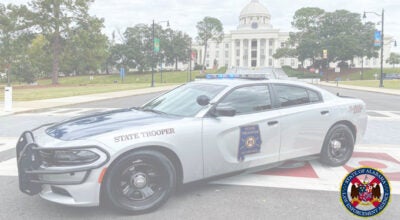City’s biofuel system ready
Published 11:59 pm Wednesday, April 22, 2009
The city of Andalusia kicked off its biodiesel program early Wednesday morning, taking advantage of the Earth Day holiday to announce its venture that will help protect the environment, among other benefits.
The city is partnering with Shaw Industries to collect used cooking oil from individuals and local restaurants, and convert that oil into a biodiesel fuel that will be used to power the city’s vehicles and Shaw’s boilers, among other uses. The program is almost entirely financed by a $78,000 U.S. Department of Agriculture Rural Business Enterprise grant.
“First and foremost, this program will help keep this oil out of the sewage and wastewater treatment systems,” City Clerk John Thompson said. “We spend thousands of dollars a year just cleaning oil out of those systems. It’s also good for business, because our largest employer (Shaw) gets a great benefit out of it.”
Thompson said the city already has agreements to collect used oil from three local restaurants — Mendoza’s Mexican Restaurant, David’s Catfish House and Tabby D’s, with more agreements hopefully on the way. In addition, citizens have several options if they would like to participate in the program.
One-gallon plastic containers can be obtained at three locations in Andalusia — the adult activity center, Winn-Dixie and Cost Plus. After being filled, the containers can be brought back to one of three locations and exchanged for an empty one. Also, citizens can call city hall and request a container, which can be filled and left curbside along with conventional recycling bags and Hobo trash containers.
Cary Baker, director of operations at the Andalusia Shaw plant, and Andalusia city officials joined Thompson in detailing the program. Thanks to the grant, the city was able to purchase a complex filtration and processing system that will convert the used cooking oil into a useable fuel. Those processors and tanks are stored at the city’s public works department, which was also the location of Wednesday’s official announcement.
Thompson said the grant financed all but $4,500 of the project.
Jim Hogg, public works director for the city of Andalusia, detailed the science behind the process of converting oil into biofuel. The used oil is stored in several large tanks, which help to filter out impurities; it is then heated to 140 degrees and goes through a “titration testing” to determine what chemicals must be added during the conversion process.
“You do this test to determine how much free fatty acids are in the oil,” he said. “Those fatty acids will turn into soap, if they’re not correctly processed, so we determine what chemicals need to be added to neutralize those fatty acids. Then you inject those chemicals into the process with the oil, and it takes about two hours to go through that process.”
Hogg said the chemical process results in a waste product of glycerin. After removing the glycerin, the biofuel is then cooled and put through additional filtrations to remove any other impurities. He said the city can get about 55 gallons of biodiesel from 70-80 gallons of raw cooking oil and that the process takes about 4.5 hours.
The biodiesel can then be used in the city’s vehicles, although he said a “weaning” process may be initially necessary to prepare the machinery to use the new style of fuel.
“This biodiesel burns so much cleaner than regular fuel, so it’s not recommended to just start straight the first time you put it in a tank,” Hogg said. “It’s actually so clean that it will make the residue (from conventional diesel) come loose in the engine, so you’ll be constantly changing the fuel filters.”
Baker said Shaw’s own biodiesel conversion program has been a great success in helping to power the Andalusia plant’s boilers, and the company is proud to partner with the city in its own biodiesel venture.
“The cooking oil initiative that we’re using through our plant is very similar to the city’s initiative,” he said. “We collect from our employees, we collect from community businesses, and we recycle it back into biodiesel. We then burn that biodiesel in our boiler, at our plant, to create steam as part of our process operations.
“We can then use the savings that we get, and credit it to our freight account.”
Baker further explained that the local Shaw plant has to take advantage of every savings it can, as its facility is located a great distance from the corporation’s Dalton, Ga., headquarters.
“We are the farthest away, so we have the highest costs for freight (within the company),” he said. “Anything that we can do to help offset those costs creates a financial advantage for us. Biodiesel gives us the opportunity for that advantage.”
Thompson said the program also provides a positive impact for the city’s goal of attracting additional industry.
“This partnership with Shaw shows to other prospective businesses that the city of Andalusia will partner with them in ways to make their own businesses more successful,” he said. “And there are a lot of side benefits for the residents of Andalusia. The less money that has to be spent on water and sewerage treatments, then that’s more money that we can use productively for the citizens of Andalusia.
“It’s really a win-win for the residents and businesses in Covington County.”





